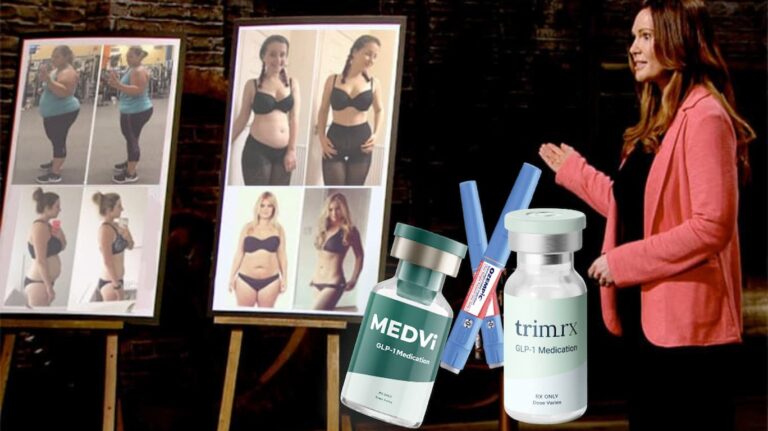Simple Steps to Keep Your Cholesterol in the Healthy Zone
Keeping cholesterol levels under control in healthy zone is essential for your heart health. Here are 5 proven strategies to help get your numbers where they should be.
Do you know your cholesterol numbers? High cholesterol puts you at major risk for heart disease and stroke, two leading causes of death. But the good news is that healthy lifestyle changes can help get your cholesterol and blood sugar levels back into the ideal range by Maintain Healthy Cholesterol Levels.
Key Takeaways:
- Stress management is crucial for heart health as chronic stress can contribute to unhealthy habits and negatively impact cholesterol levels. Finding healthy coping mechanisms like exercise, relaxation techniques, or counseling can help.
- While lifestyle changes are the cornerstone of cholesterol management, medications and supplements may be recommended in some cases to further lower cholesterol levels and reduce heart disease risk.
- Regular check-ups and cholesterol screenings are essential for early detection and effective management of high cholesterol. Work closely with your healthcare provider to monitor your levels and develop a personalized treatment plan if needed.
Understanding Cholesterol
Cholesterol is a waxy, fat-like substance produced by the liver and found in every cell of the body. It plays a vital role in various bodily functions, such as hormone production, digestion, and cell membrane structure. However, when cholesterol levels become too high, it can lead to serious health problems, particularly heart disease.
There are two main types of cholesterol:
- Low-Density Lipoprotein (LDL) – Often referred to as “bad” cholesterol, LDL can build up in the arteries, forming plaque and increasing the risk of heart disease and stroke.
- High-Density Lipoprotein (HDL) – Known as “good” cholesterol, HDL helps remove excess LDL cholesterol from the arteries and transport it back to the liver for elimination.
In addition to these two types, your doctor may also measure your triglycerides, another type of fat in the blood that can contribute to the buildup of plaque in the arteries.
Also Read: The Ultimate Survival Food to Safeguard Your Family During Emergency
Here’s a table showing the recommended cholesterol levels for adults:
Sample Diet Plan
Here’s a sample diet plan to help you maintain healthy cholesterol levels:
| Meal | Food Choices |
|---|---|
| Breakfast | Oatmeal with berries and a sprinkle of nuts |
| Snack | An apple with a small handful of almonds |
| Lunch | Grilled salmon salad with mixed greens and olive oil dressing |
| Snack | Carrot sticks with hummus |
| Dinner | Quinoa with steamed broccoli and grilled chicken breast |
| Snack | A small bowl of mixed berries |
This diet plan is designed to provide you with a balanced intake of nutrients while promoting healthy cholesterol levels.
It’s important to note that cholesterol levels can be influenced by various factors, including genetics, diet, lifestyle, and certain medical conditions.
The Dangers of High Cholesterol
High levels of LDL cholesterol can lead to the buildup of plaque in the arteries, a condition known as atherosclerosis. Over time, this buildup can narrow and harden the arteries, restricting blood flow and increasing the risk of heart attack, stroke, and other cardiovascular diseases.
According to the Centers for Disease Control and Prevention (CDC), high cholesterol is a major risk factor for heart disease, which is the leading cause of death in the United States. In fact, people with high cholesterol have about twice the risk of developing heart disease as those with optimal levels.
Moreover, high cholesterol can also contribute to the development of other health problems, such as:
- Peripheral Artery Disease (PAD): A condition in which plaque buildup narrows the arteries carrying blood to the legs and arms, increasing the risk of blood clots and limb amputation.
- Stroke: High cholesterol can lead to the formation of blood clots or the buildup of plaque in the arteries supplying blood to the brain, increasing the risk of stroke.
- Diabetes: Studies have shown a link between high cholesterol levels and an increased risk of developing type 2 diabetes.
Maintaining healthy cholesterol levels is crucial for preventing these potentially life-threatening conditions and promoting overall cardiovascular health.
Diet for Healthy Cholesterol Levels
Your diet plays a significant role in managing cholesterol levels. Making wise food choices and adopting a heart-healthy eating pattern can help lower LDL (bad) cholesterol and raise HDL (good) cholesterol. Here are some dietary recommendations to maintain healthy cholesterol levels:
Limit Saturated and Trans Fats
Saturated fats and trans fats are known to raise LDL cholesterol levels. It’s essential to limit your intake of these unhealthy fats. Sources of saturated fats include:
- Fatty cuts of meat
- Butter
- Cheese
- Whole milk and cream
- Tropical oils (e.g., coconut oil, palm oil)
Trans fats are found in many fried foods, baked goods, and processed snacks. They can also be created during the manufacturing process when liquid vegetable oils are partially hydrogenated.
Increase Intake of Fiber and Unsaturated Fats
Dietary fiber, particularly soluble fiber, can help lower LDL cholesterol levels by binding with cholesterol in the digestive system and removing it from the body. Good sources of soluble fiber include:
- Oats
- Barley
- Legumes (e.g., beans, lentils)
- Fruits (e.g., apples, citrus fruits)
- Vegetables (e.g., Brussels sprouts, carrots)
Unsaturated fats, such as monounsaturated and polyunsaturated fats, can help improve cholesterol levels by lowering LDL and raising HDL. These healthy fats are found in:
- Nuts and seeds
- Avocados
- Olive oil
- Fatty fish (e.g., salmon, mackerel, sardines)
Incorporate Plant-Based Proteins
Plant-based proteins, such as those found in legumes, nuts, and soy products, are a great alternative to animal-based proteins, which are often high in saturated fat. Incorporating more plant-based proteins into your diet can help lower LDL cholesterol levels.
Also Read: How Aging Men boost vitality, stamina, and sexual performance.
Limit Alcohol Consumption
While moderate alcohol consumption may have some potential health benefits, excessive alcohol intake can raise triglyceride levels and contribute to weight gain, both of which can negatively impact cholesterol levels.
Consider Cholesterol-Lowering Foods
Certain foods have been shown to have cholesterol-lowering properties. These include:
- Oats and Barley: Rich in beta-glucan, a type of soluble fiber that can help lower LDL cholesterol.
- Nuts: Almonds, walnuts, and pistachios are excellent sources of unsaturated fats and fiber, which can improve cholesterol levels.
- Fatty Fish: Fish like salmon, mackerel, and sardines are high in omega-3 fatty acids, which can help raise HDL cholesterol and lower triglycerides.
- Garlic and Onions: Compounds in garlic and onions may help lower LDL cholesterol and prevent blood clots.
Remember, a balanced and varied diet is key to maintaining healthy cholesterol levels. It’s also important to consult with a healthcare professional or registered dietitian for personalized dietary guidance.
Exercise and Physical Activity
Regular physical activity is another crucial component in managing cholesterol levels and promoting overall heart health. Exercise can help:
- Lower LDL (Bad) Cholesterol: Studies have shown that aerobic exercise, such as brisk walking, running, or swimming, can help lower LDL cholesterol levels.
- Raise HDL (Good) Cholesterol: Exercise, particularly aerobic exercise, has been found to increase HDL cholesterol levels, which can help remove LDL cholesterol from the arteries.
- Improve Triglyceride Levels: Regular physical activity can help lower triglyceride levels, another risk factor for heart disease.
- Promote Weight Loss: Exercise, combined with a healthy diet, can aid in weight loss, which is associated with improved cholesterol levels.
Also Read: Healthy Survival Foods That Stays for over 25 years
Here are some recommendations for incorporating physical activity into your routine:
Aerobic Exercise
Aim for at least 150 minutes of moderate-intensity aerobic exercise or 75 minutes of vigorous-intensity aerobic exercise per week. Examples include:
- Brisk walking
- Running
- Swimming
- Cycling
- Aerobic dance classes
Strength Training
Engage in strength training exercises at least two days per week. Resistance training can help increase lean muscle mass, which in turn can boost metabolism and improve cholesterol levels. Examples include:
- Weight lifting
- Resistance band exercises
- Body-weight exercises (e.g., push-ups, squats)
Incorporate Daily Movement
In addition to structured exercise, aim to increase your daily physical activity levels by incorporating more movement into your daily routine. This could include:
- Taking the stairs instead of the elevator
- Walking or cycling for short distances instead of driving
- Performing household chores or yard work
- Standing and moving around while working or watching TV
It’s important to note that any amount of physical activity is better than none. If you’re new to exercise or have any medical conditions, it’s recommended to consult with a healthcare professional before starting a new exercise program.
Read This: How To Shrink An Enlarged Prostate
Weight Management
Maintaining a healthy weight is crucial for managing cholesterol levels and reducing the risk of heart disease. Being overweight or obese is associated with higher levels of LDL cholesterol, lower levels of HDL cholesterol, and increased triglycerides.
Here are some strategies for effective weight management:
- Calorie Deficit: To lose weight, you need to create a calorie deficit by consuming fewer calories than your body burns. A safe and sustainable calorie deficit is typically 500-1000 calories per day.
- Balanced Diet: Focus on a diet rich in fruits, vegetables, whole grains, lean proteins, and healthy fats. Limit your intake of processed foods, sugary beverages, and saturated and trans fats.
- Portion Control: Practice portion control by using smaller plates, reading food labels, and being mindful of portion sizes when eating out.
- Regular Exercise: Combine a balanced diet with regular physical activity to support weight loss and maintain a healthy weight.
- Seek Professional Help: If you’re struggling with weight management, consider seeking guidance from a healthcare professional, registered dietitian, or certified personal trainer.
It’s important to remember that weight loss is a journey, and sustainable lifestyle changes are key to long-term success. Crash diets or extreme measures are often ineffective and can potentially harm your health.
Stress Management
Chronic stress can have a detrimental effect on cholesterol levels and overall heart health. When you’re under constant stress, your body produces higher levels of cortisol and other hormones that can contribute to weight gain, increased inflammation, and unhealthy lifestyle choices – all of which can negatively impact your cholesterol levels. To manage stress and protect your heart, it’s important to find healthy coping mechanisms such as:
- Regular exercise and physical activity
- Relaxation techniques like meditation, deep breathing, or yoga
- Engaging in hobbies or activities you enjoy
- Seeking support from friends, family, or a mental health professional
By making stress management a priority, you can reduce the negative impact of chronic stress on your cholesterol levels and overall cardiovascular health.
Medications and Supplements
While lifestyle changes, such as a heart-healthy diet and regular exercise, are the foundation of cholesterol management, medications and supplements may be recommended in certain cases to further lower cholesterol levels and reduce the risk of heart disease. Some common options include:
- Statins: These are the most commonly prescribed cholesterol-lowering medications that work by blocking an enzyme involved in cholesterol production, effectively reducing LDL (bad) cholesterol levels.
- Cholesterol absorption inhibitors: These medications work by limiting the absorption of dietary cholesterol in the intestines.
- Bile acid sequestrants: These medications bind to bile acids in the digestive system, promoting their excretion and subsequently lowering LDL cholesterol levels.
- Fibrates: These medications are primarily used to lower triglyceride levels and may also help increase HDL (good) cholesterol levels.
- Plant sterols and stanols: These naturally occurring compounds, found in supplements and fortified foods, can help block the absorption of cholesterol in the intestines.
It’s important to note that medications and supplements should only be taken under the guidance of a healthcare professional, as they may have potential side effects and interact with other medications or conditions.
Recommended Article: How To Prepare Keto Gummies In 2 Minutes, Just 3 Ingredients Needed
Regular Check-ups and Monitoring
Regular check-ups and cholesterol screenings are essential for early detection and effective management of high cholesterol levels. By monitoring your cholesterol levels regularly, you and your healthcare provider can identify any issues and take appropriate steps to address them.
During these check-ups, your healthcare provider will typically order a lipid panel, which measures your total cholesterol, LDL (bad) cholesterol, HDL (good) cholesterol, and triglyceride levels. Based on these results, your healthcare provider can:
- Assess your risk for heart disease and other cardiovascular issues
- Determine if lifestyle changes are sufficient or if medications are needed
- Monitor the effectiveness of any cholesterol-lowering treatments or interventions
- Provide personalized guidance and support for maintaining healthy cholesterol levels
It’s generally recommended to have your cholesterol levels checked every 4 to 6 years if you have a low risk of heart disease, or more frequently if you have a higher risk or have been diagnosed with high cholesterol or other cardiovascular conditions.
By working closely with your healthcare provider and following their recommendations for regular check-ups and monitoring, you can stay on top of your cholesterol levels and take proactive steps to maintain a healthy heart.
ALSO Read: 10 Day Weight Loss Cleanse — Good Detox for Weight Loss
Conclusion on Maintain Healthy Cholesterol Levels
Maintaining healthy cholesterol levels is crucial for reducing the risk of heart disease, stroke, and other cardiovascular issues. By adopting a heart-healthy lifestyle, you can take control of your cholesterol levels and promote overall well-being.
Here’s a recap of the key strategies for maintaining healthy cholesterol levels:
- Follow a Cholesterol-Friendly Diet: Limit saturated and trans fats, increase your intake of fiber and unsaturated fats from plant-based sources, and incorporate cholesterol-lowering foods like oats, nuts, and fatty fish.
- Stay Physically Active: Engage in regular aerobic exercise, strength training, and daily movement to help lower LDL cholesterol, raise HDL cholesterol, and improve triglyceride levels.
- Maintain a Healthy Weight: Achieving and maintaining a healthy weight through a balanced diet and regular exercise can positively impact your cholesterol levels and reduce the risk of heart disease.
- Quit Smoking: Smoking is detrimental to your overall health, including your cholesterol levels. Quitting smoking can help improve your HDL cholesterol and reduce the risk of heart disease.
- Manage Stress: Chronic stress can contribute to unhealthy habits and negatively impact cholesterol levels. Find healthy ways to manage stress, such as practicing relaxation techniques, engaging in physical activity, or seeking professional support.
- Monitor Your Cholesterol Levels: Regular check-ups and cholesterol screenings are essential for detecting and addressing any issues early on. Work closely with your healthcare provider to monitor your cholesterol levels and develop a personalized plan if necessary.
Remember, maintaining healthy cholesterol levels is a lifelong commitment, but the benefits of a heart-healthy lifestyle are invaluable. By making conscious choices and incorporating these strategies into your daily routine, you can take proactive steps toward better heart health and overall well-being.





